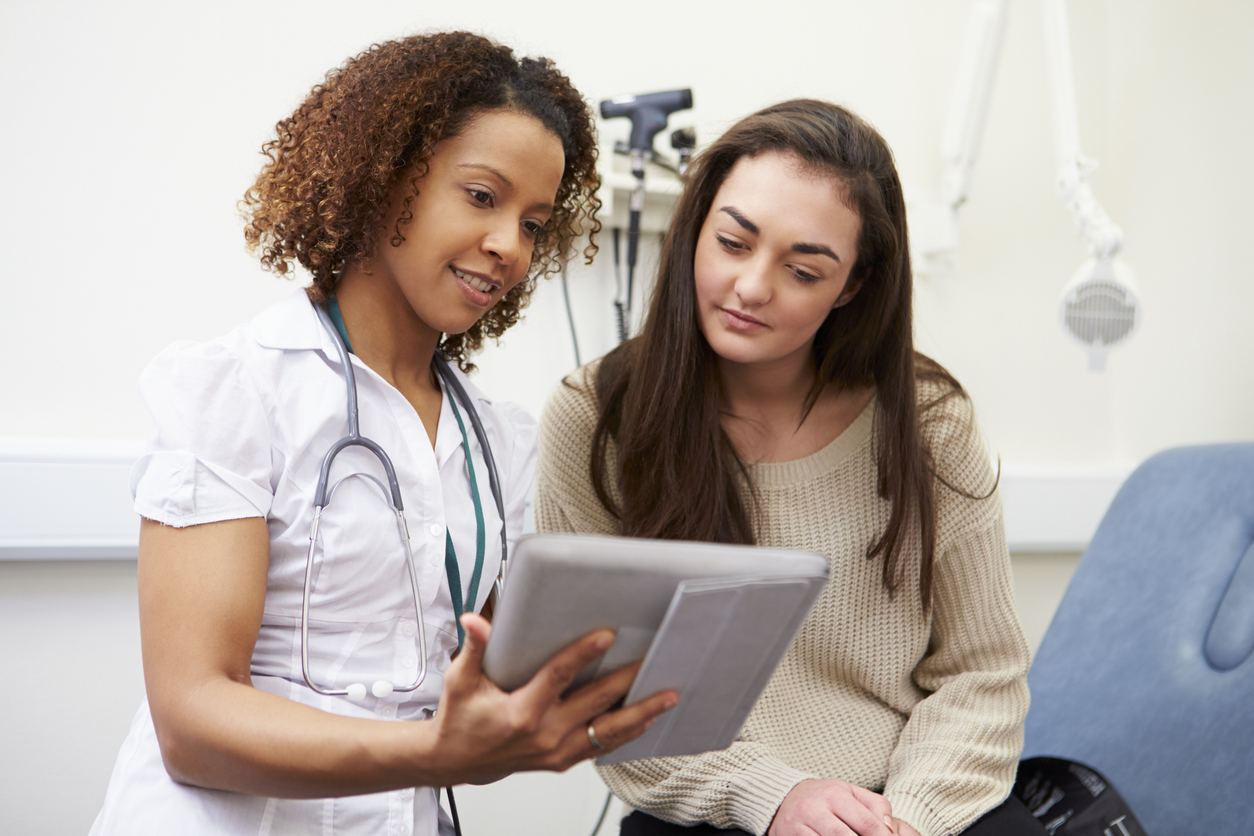
Polycystic Ovarian Syndrome, or PCOS, affects about 10% of females. PCOS is a condition in which there is an imbalance of hormones and a lack of regular ovulation, resulting in irregular periods and in an excess of a certain type of hormones, called androgens.
These extra hormones that are being produced can generate numerous cysts on the ovaries and may also cause symptoms such as:
- Irregular or missed periods
- Acne or oily skin
- Hair growth (chest, stomach, back, face)
- Weight gain, especially around the belly, or difficulty losing weight
- Receding hairline or thinning hair
- Anxiety and/or depression
- Infertility
- Skin tags and/or dark patches of skin around the neck
Many people with PCOS also tend to be insulin-resistant. Insulin is a hormone that regulates blood sugar. For example, if you eat a slice of chocolate cake, your body will release insulin to enable your body to use all of the sugar in that cake. With insulin resistance, the sugar will remain in the bloodstream instead of being used up or stored for later. So here are some things you can do to help lower blood sugars naturally:
- Limit carbohydrates, especially simple carbs. Simple carbs are foods that tend to be overly processed and high in sugar. Think soda, baked goods, fried foods, fruit juice, candy, etc. Simple carbs will cause a very fast spike in blood sugar levels, where complex carbs will have a gradual increase. Complex carbs can be found in quinoa, vegetables, beans, and whole grains. Swapping simple for complex carbs is a great first step.
- Exercise. Making sure you stay active daily will lower blood sugar levels and help treat insulin resistance or prevent it all together. Aim for about 30 mins of activity daily, 5 days a week.
How is PCOS diagnosed?
Your provider may do a pelvic exam or order an ultrasound of your ovaries. Blood tests that check hormone levels may also be ordered.
Are you at risk for PCOS?
You may have an increased risk for PCOS if your mother or sister has it. We also know that obesity is directly linked to PCOS. If you already have type 2 diabetes or insulin resistance, you may also have underlying PCOS.
How is PCOS treated?
Although PCOS is not curable, there are a few ways to manage the symptoms. The biggest thing you can do is eat a healthy diet and exercise. If you have a healthy body weight, your reproductive hormones will be more balanced, reducing PCOS symptoms. Remember, swap that soda for water, stay away from simple carbs, and exercise daily.
The medications that are used depend on whether or not you want to get pregnant. There are some medications such as hormonal birth control, diabetes medications, and medications to block the excess of reproductive hormones that may grant you some relief from PCOS symptoms. Other medications can actually stimulate the ovaries to ovulate (release an egg) instead of just making small cysts.
If you think you might have PCOS, make an appointment with one of our Women’s Health providers at 507-646-1478.
